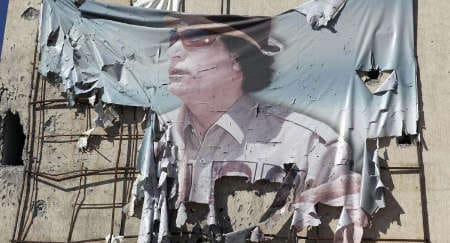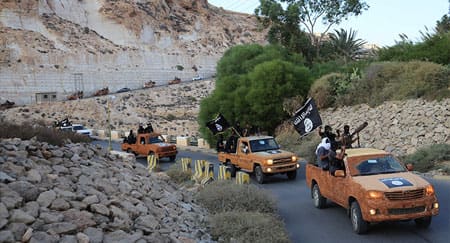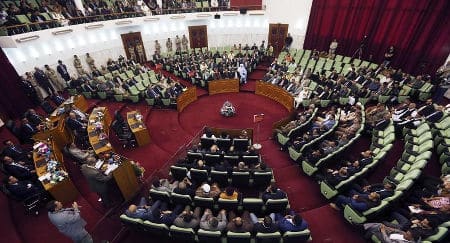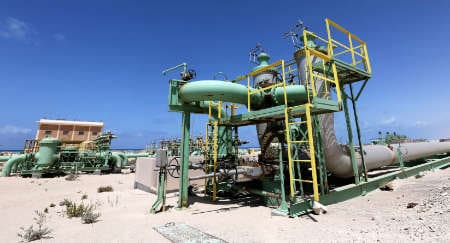What’s really holding Libya back
After Libyan rebels killed former Libyan leader Mu’ammar al-Qadhafi in October 2011, the country rejoiced with hopes that a new generation of politicians would be able to address the grievances that gave rise to the revolution. But three years later, the failures of these elected leaders have spawned new frustrations that seem almost as insurmountable as those Qadhafi was never able to resolve.
These problems stem in part from the growing pains of unseasoned politicians. But the real dilemma Libya faces is that its citizens’ expectations are misplaced. The country has structural challenges that could take a generation to resolve. From a lack of technical capacity to a division of formal and informal authority pitting revolutionaries against state institutions, Libya is coping with the same dilemmas that plagued the Qadhafi years.
SECURITY REFORM
Western nations have focused their efforts on security reform, believing that this is the elixir for most of Libya’s problems. They are particularly concerned about eliminating jihadists, who have killed both Libyans and Westerners, including the American ambassador in September 2012.
To do so, Western nations are working to build a strong army and police force. But this will anger the country’s hundreds of autonomous militias, who do not take their orders from the central government. Some units, such as those from the Western towns of Misrata and Zintan, are grouped according to region. Others, in the east, such as the Islamist February 17th Brigade, are ideological in nature. All, however, march to their own drum with impunity. In November 2013, Misrati forces opened fire on civilians in the capital, killing forty-three. Militias from the city of Zawiya have consistently clashed with their Warshfana neighbors. And, in the eastern city of Benghazi, Islamists have assassinated more than 50 security officials.
The parliament, known as the General National Congress (GNC), has proved unable to rein in the militias. Its plans to build an army and police force have been consistently thwarted by the brigades. Instead, the GNC has exacerbated the problem by enlisting and thus emboldening them. The largest political party, the National Forces Alliance (NFA), has aligned itself with Zintani units while its chief rival, the Justice and Construction Party (JCP), has co-opted Mistrati forces. In 2011, the prime minister created the Supreme Security Committee (SSC) from militia groups to act as a parallel police force. Other ministries contract brigades to provide security.
The United States believes that the lawlessness plaguing the country is impeding the development of a strong central government. To combat it, Washington has announced plans to train between 5-7,000 fighters and has earmarked $8 million to do so.
But what America overlooks is that the security challenges Libya faces today are no different from those that hamstrung the Qadhafi regime. After a disastrous defeat by Chad in 1987 put an end to a nine year war against his southern neighbor, Qadhafi neglected his army. In the years following a failed military coup in 1992 - the last in a long string of military rebellions - Qadhafi changed tack, repeatedly announcing his intention to disband the country’s armed forces and replace them with the popular militias. Qadhafi selected the best officers and put them in special brigades. There, they received training and weapons that the military units were not afforded. Qadhafi doled out weapons to groups such as the Committee to Combat Heresy and Drugs, and the General Authority of Youth and Sport. He also invested revolutionary committees with wide sweeping powers.
Today, there is not much difference between the GNC’s inability to stand one up to cut the militias down to size and Qadhafi’s neglected army. Under both governments, revolutionary power trumps institutional legitimacy. Blurred lines of authority hinder the establishment of an efficient chain of command. Until the GNC addresses these dilemmas, there is little chance that it will be able to restore order.
POLITICAL AND ADMINISTRATIVE GRIDLOCK
One of the biggest challenges Libya faces is its dysfunctional parliament. Originally envisioned to serve as an interim body with a term of 18 months to write a constitution, the GNC has extended its mandate. Infighting between the NFA and JPC has resulted in political gridlock that has left many Libyans frustrated with the democratic process. The GNC’s unfamiliarity with electoral politics in the aftermath of 42 years of authoritarian rule is partially responsible for this predicament.
But the real culprit is the country’s political culture. Qadhafi atomized society, destroying state institutions and neglecting investment in higher education. He viewed the static bureaucracy as his principal adversary, preventing the masses from embracing his revolutionary ideology. To neutralize it, he occasionally dismantled ministries, moved government offices outside the capital and suggested that citizens receive the country’s oil wealth directly rather than entrusting state institutions to manage it.
Years of sanctions also prevented a generation of Libyans from studying in Western universities. Instead of moving younger cadres up the ladder, Qadhafi merely shuffled the same troglodytes between ministries.
Qadhafi’s childhood friend Muhammad Abu’l-Qasim al-Zway epitomizes this. During a 34 year political career, he held cabinet portfolios ranging from Information to Justice to Public Security, in addition to serving as ambassador to several countries. He finished his career as Qadhafi’s last speaker of parliament.
The lack of technical capacity equally hampers the bureaucracy from functioning. Few have the skills necessary to rebuild ministries. Most are incapable of independent decision making, and are limited instead to rubber stamping their superiors’ decisions. And in a country where Qadhafi personally signed every contract over $200 million, there were – are – few competent bureaucrats.
But rather than removing obstacles to development, the GNC has merely created more. In May 2013 it passed a political isolation law, barring anyone who served under Qadhafi from holding public office for ten years. In doing so, it has embraced Qadhafi’s exclusionary tactics that prevented all but a few from reaching the upper echelons of government.
OTHER CHALLENGES
Libya is plagued by other problems as well. A federalist movement in the East is chipping away at the central government’s authority. In October 2013 its leaders announced the formation of an autonomous region and selected a cabinet. Brigades associated with the movement took control of three of the country’s five oil export terminals, preventing fuel shipments. In Libya’s hinterlands, tribes shut down oil pipelines to protest everything from lack of citizenship to lack of investment in their areas. These stoppages slowed oil production from a pre-revolution level of 1.6 million barrels per day to 600,000, in a country where oil exports account for 95% of foreign currency earnings.
But like many of the country’s problems that make international headlines, the oil slowdown poses very little threat to Libya. It has approximately $119 billion of foreign currency reserves and a sovereign wealth fund with at least $50 billion more that can cover any budgetary shortfall. But with the government unable to even allocate half of the budget, it is unlikely that it will ever have to dip into its coffers.
Problems such as unbridled militias and oil stoppages highlight the erosion of state authority. The best way to tackle these issues is to foster efficient governance, build state institutions, and encourage respect for the rule of law. By focusing on the core problems that have historically plagued Libya rather than their current byproducts, Western nations can help put Libya on the path to stabilization. And that will make everyone in the region more secure.




